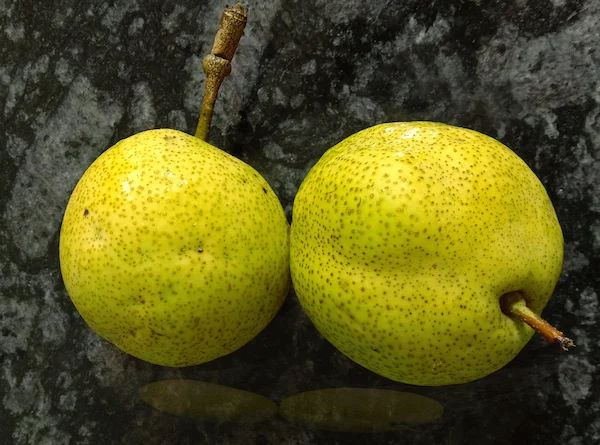Winter Fruits Available in India
Winter fruits in India, why eat them. Top winter fruits, what they contain, how and where to store and tips to include in your daily diet.


Introduction
Winter in India brings not just cooler weather but also a bounty of fresh, nutritious fruits that can boost immunity, keep illnesses at bay, and add flavour to your meals. These seasonal fruits are packed with vitamins, minerals, and antioxidants that help fight colds, improve digestion, and keep your skin glowing.
If you're looking for ways to stay healthy this winter, incorporating these fruits into your diet is a great start. Let’s explore some of the best winter fruits available in India, their health benefits, and how you can enjoy them.
Why Eat Seasonal Winter Fruits?
Eating seasonal fruits ensures you get the freshest, most nutrient-rich produce. Winter fruits are especially beneficial because they:
Boost Immunity – Rich in Vitamin C and antioxidants, they help fight infections.
Keep You Hydrated – Many winter fruits have high water content, preventing dry skin.
Aid Digestion – High fibre content helps with digestion and gut health.
Provide Natural Warmth – Some fruits like dates and figs provide energy and warmth.
Top Winter Fruits in India and Their Benefits
1. Oranges (Santra / Narangi)
Why Eat Them?
High in Vitamin C, which strengthens immunity.
Rich in fibre, aiding digestion.
Contains antioxidants that improve skin health.
How to Enjoy:
Eat fresh as a snack.
Make fresh orange juice (without sugar).
Add to salads for a tangy twist.
2. Guava (Amrood)
Why Eat Them?
One of the richest sources of Vitamin C (even more than oranges!).
High in dietary fibre, good for digestion.
Contains lycopene, which supports heart health.
How to Enjoy:
Sprinkle chaat masala for a spicy-sweet snack.
Blend into smoothies.
Eat raw with a pinch of salt.
3. Pomegranate (Anar)
Why Eat Them?
Packed with antioxidants that fight inflammation.
Helps in blood circulation and heart health.
Rich in iron, good for anaemia.
How to Enjoy:
Sprinkle seeds on yoghurt or salads.
Drink fresh pomegranate juice.
Add to chaats for extra crunch.
4. Apples (Seb)
Why Eat Them?
High in fibre, aiding digestion.
Contains quercetin, which boosts brain health.
Helps regulate blood sugar levels.
How to Enjoy:
Eat as a healthy snack.
Bake with cinnamon for a warm dessert.
Add slices to oatmeal.
5. Grapes (Angoor)
Why Eat Them?
Rich in resveratrol, which supports heart health.
High in water content, keeping you hydrated.
Contains Vitamin K, good for bones.
How to Enjoy:
Freeze for a refreshing snack.
Add to fruit salads.
Make homemade grape juice.
6. Kiwi
Why Eat Them?
Extremely high in Vitamin C, boosting immunity.
Contains actinidin, aiding digestion.
Rich in potassium, supporting heart health.
How to Enjoy:
Slice and eat fresh.
Blend into smoothies.
Add to fruit salads.
7. Strawberries
Why Eat Them?
High in antioxidants, protecting cells.
It contains ellagic acid, which may prevent cancer.
Rich in Vitamin C, improving skin health.
How to Enjoy:
Eat fresh with cream or yoghurt.
Make strawberry milkshakes.
Add to desserts or pancakes.
8. Figs (Anjeer)
Why Eat Them?
High in fibre, preventing constipation.
Rich in calcium, good for bones.
Natural energy booster, great for winters.
How to Enjoy:
Eat dried figs as a snack.
Soak overnight and eat in the morning.
Add to oatmeal or desserts.
9. Dates (Khajoor)
Why Eat Them?
Natural energy source, great for cold days.
High in iron, preventing anemia.
Contains magnesium, aiding muscle health.
How to Enjoy:
Eat 2-3 soaked dates daily.
Add to milkshakes or desserts.
Stuff with nuts for a healthy snack.
10. Sweet Lime (Mosambi)
Why Eat Them?
Rich in Vitamin C, boosting immunity.
Helps in detoxification.
Aids digestion and prevents acidity.
How to Enjoy:
Drink fresh mosambi juice.
Add to salads.
Eat as a refreshing snack.
Consult Top Nutritionists For More Benefits
Tips for Choosing and Storing Winter Fruits
Buy Fresh: Look for firm, unblemished fruits.
Store Properly: Some fruits like apples and oranges last longer in the fridge, while bananas and figs should be kept at room temperature.
Wash Well: Rinse fruits thoroughly to remove pesticides.
How to Include More Winter Fruits in Your Diet?
Start Your Day Right: Have a fruit bowl or fresh juice.
Healthy Snacking: Replace chips with fruits like apples or guava.
Dessert Swap: Choose fruit salads over sugary sweets.
Hydration Boost: Infuse water with citrus fruits for flavour.
When to Consult a Doctor?
While fruits are healthy, some people may have allergies or conditions (like diabetes) that require moderation. If you experience:
Allergic reactions (itching, swelling).
Blood sugar spikes after eating sweet fruits.
Digestive issues like bloating.
Final Thoughts
Winter fruits are nature’s gift to keep us healthy during the cold months. Including them in your diet can strengthen immunity, improve digestion, and keep your energy levels high. So, stock up on these delicious fruits and enjoy a healthier winter!
Consult Top Nutritionists
Consult Top Nutritionists For More Benefits

Dr. Ramalinga Reddy
General Physician
5 Years • MBBS MD General medicine
Bengaluru
PRESTIGE SHANTHINIKETAN - SOCIETY CLINIC, Bengaluru
Ms. Bhavana Shetty
Dietician
7 Years • DDHN & Masters in Clinical Nutrition & Dietetics
Bangalore
Apollo Sugar Clinic, Seetha circle bangalore, Bangalore
Dt. Ila Sharma
Clinical Nutritionist
18 Years • Master in food & Nutrition
Gurugram
VIPUL GREENS - SOCIETY CLINIC, Gurugram
Dr Sumanth R
General Physician
2 Years • MBBS
Bengaluru
PRESTIGE SHANTHINIKETAN - SOCIETY CLINIC, Bengaluru
Mrs Sneha P V
Nutritionist
10 Years • Master of science in Food and Nutrition
Bangalore
Apollo Clinic Bellandur, Bangalore
Consult Top Nutritionists

Dr. Ramalinga Reddy
General Physician
5 Years • MBBS MD General medicine
Bengaluru
PRESTIGE SHANTHINIKETAN - SOCIETY CLINIC, Bengaluru
Ms. Bhavana Shetty
Dietician
7 Years • DDHN & Masters in Clinical Nutrition & Dietetics
Bangalore
Apollo Sugar Clinic, Seetha circle bangalore, Bangalore
Dt. Ila Sharma
Clinical Nutritionist
18 Years • Master in food & Nutrition
Gurugram
VIPUL GREENS - SOCIETY CLINIC, Gurugram
Dr Sumanth R
General Physician
2 Years • MBBS
Bengaluru
PRESTIGE SHANTHINIKETAN - SOCIETY CLINIC, Bengaluru
Mrs Sneha P V
Nutritionist
10 Years • Master of science in Food and Nutrition
Bangalore
Apollo Clinic Bellandur, Bangalore




